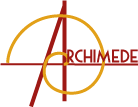Abstract
Title: Māori funerals and the « identification » of the status of ancestors in New Zealand Aotearoa in the 20th and 21st centuries. The uses of functions of māori cloaks (kākahu) during funeral ceremonies
Among the Māori of New Zealand Aotearoa, funerals (tangihanga) are the most prominent ceremonies in social life. They allow the living to maintain relationships with each other and with their ancestors. These relationships are meant to ensure on the one hand their life and on the other hand the life of the community and its reproduction. Therefore, the Māori must be able to "identify" the entities they wish to connect with while respecting the order of precedence that organizes the Māori sociocosmic space. To achieve this, they can rely on highly valued entities called taonga. The taonga are tangible and intangible ancestral treasures handed down from generation to generation. Among these, the art of genealogies (whakapapa) and māori cloaks (kākahu) are particularly useful during the cycle of funeral ceremonies which enables the passage of a person from the world of the living to the world of the dead.
Keywords: Anthropology, māori, New Zealand Aotearoa, funeral, ancestral treasures (taonga), identification, māori cloaks (kākahu), the living and the dead.




